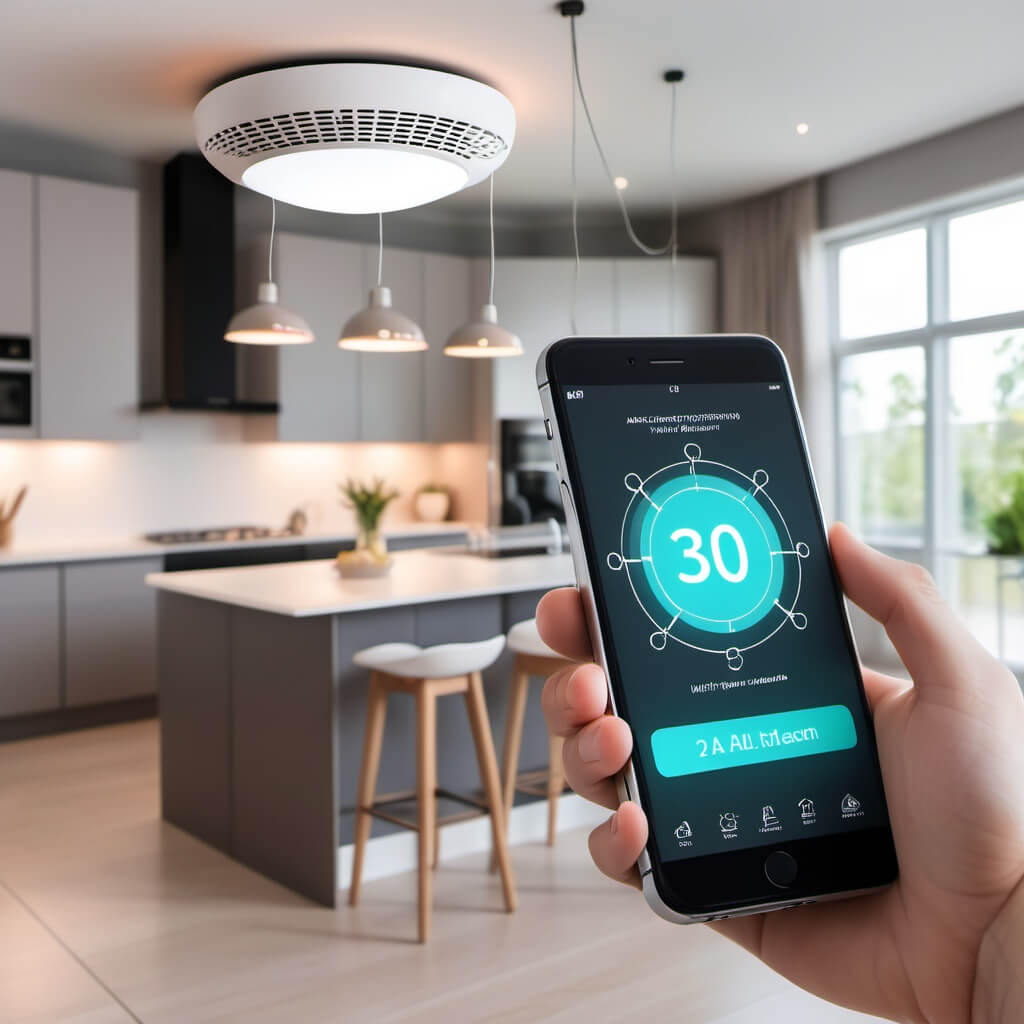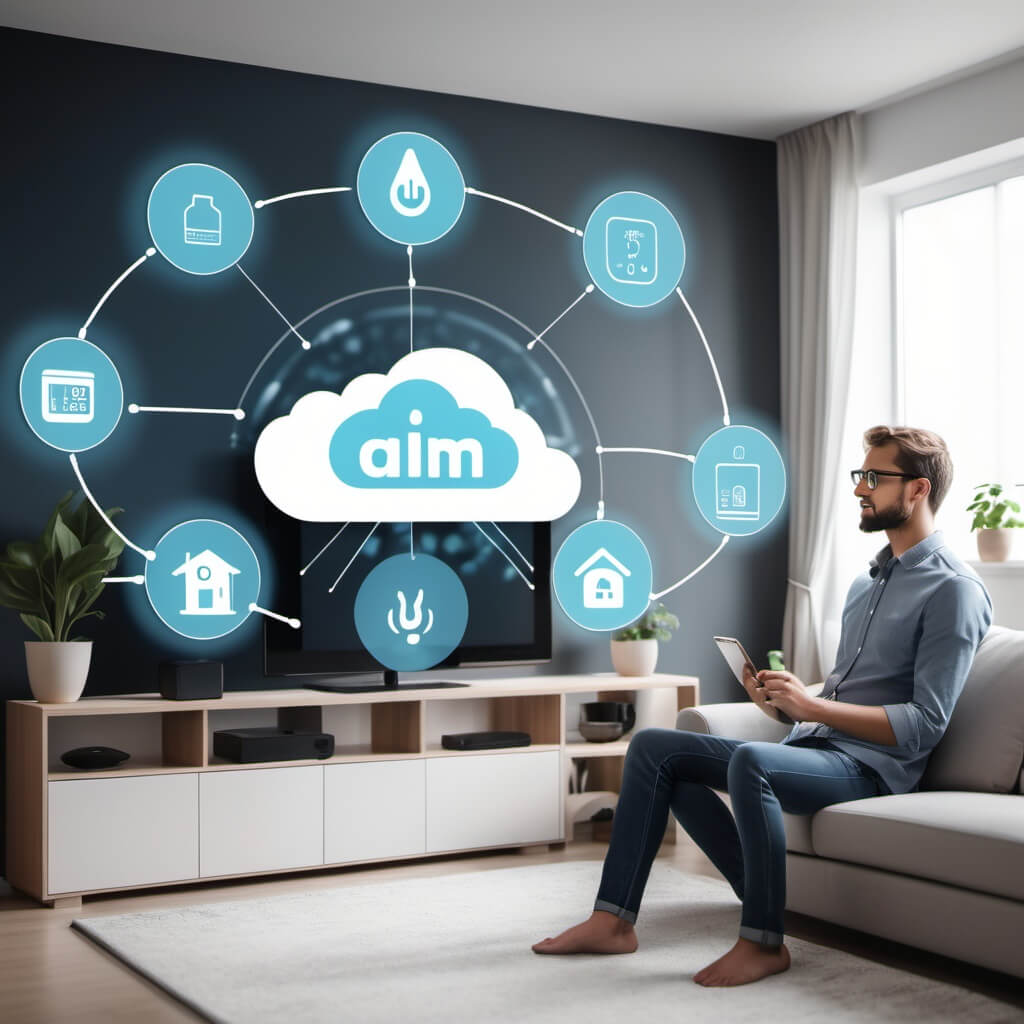The concept of home automation has been around for years, but the advent of artificial intelligence (AI) has pushed it into an entirely new dimension. What was once a futuristic idea is now an essential part of modern living. AI smart home devices are reshaping the way we interact with our homes, offering unprecedented convenience, efficiency, and personalization.
In this blog post, we’ll explore how AI is revolutionizing home automation, diving into the cutting-edge technology driving this transformation, its impact on daily life, and what the future holds.
The Rise of AI in Smart Home Devices
AI smart home devices have evolved rapidly over the past decade, combining advanced algorithms with IoT (Internet of Things) technology to create intelligent systems that learn from user behavior. These devices don’t just follow commands; they anticipate needs, making life smoother and more intuitive.
Key Innovations in AI Smart Home Devices
Voice Assistants Virtual assistants like Amazon’s Alexa, Google Assistant, and Apple’s Siri have become household staples. These AI-powered devices can manage schedules, control other smart gadgets, and even provide personalized recommendations based on past interactions.
Smart Thermostats Devices like Nest and Ecobee use AI to analyze your daily routines and preferences. They adjust the temperature automatically, optimizing energy consumption and saving costs without sacrificing comfort.
AI-Enhanced Security Systems AI is making home security smarter and more reliable. Systems like Ring and Arlo use facial recognition, motion detection, and predictive analytics to identify potential threats and alert homeowners instantly.
Smart Appliances From AI-powered refrigerators that suggest recipes based on available ingredients to washing machines that optimize water and detergent use, smart appliances are transforming mundane household chores.

The Benefits of Home Automation AI
AI-powered home automation isn’t just about cool gadgets; it’s about creating a home environment that works seamlessly around you. Here are some of the most impactful benefits:
1. Personalization
AI learns your habits and preferences over time, offering a highly personalized experience. Imagine lights that dim automatically as you wind down for the evening or a coffee machine that starts brewing as soon as your alarm goes off.
2. Energy Efficiency
Smart home devices equipped with AI help reduce energy waste. For example, AI-driven lighting systems can turn off lights in unoccupied rooms, and smart thermostats can adjust heating or cooling based on your schedule.
3. Enhanced Security
Home automation AI significantly boosts security. Smart cameras and locks powered by AI can differentiate between familiar faces and strangers, providing real-time alerts for suspicious activity.
4. Convenience
AI smart home devices eliminate repetitive tasks, allowing homeowners to focus on what matters most. Whether it’s automating grocery lists or controlling your home’s temperature remotely, convenience is at the core of home automation.
5. Improved Accessibility
AI-powered systems are invaluable for people with disabilities. Voice-controlled devices and automated systems make it easier to manage day-to-day tasks, fostering independence and improving quality of life.
Challenges and Concerns in AI Home Automation
While the benefits are undeniable, it’s important to address some of the challenges that come with integrating AI into home automation:
1. Privacy Issues
AI smart home devices collect vast amounts of data to function effectively. This raises concerns about data privacy and potential misuse by third parties.
2. Cost
High-quality AI-powered devices often come with a hefty price tag, making them less accessible to budget-conscious consumers.
3. Compatibility
With numerous brands and systems on the market, ensuring compatibility between devices can be a challenge. Homeowners may find themselves locked into specific ecosystems.
4. Learning Curve
For some, adapting to new technology can be overwhelming. Proper setup and management of AI devices may require a level of technical know-how that not everyone possesses.
The Future of AI in Home Automation
The future of home automation AI is bright, with exciting advancements on the horizon. Here’s a glimpse of what’s to come:
1. Interconnected Ecosystems
AI will enable seamless integration across all smart home devices, creating a truly interconnected ecosystem. Your fridge, thermostat, and even your car will communicate to optimize your daily routines.
2. Advanced Predictive Analytics
Future AI systems will go beyond simple automation, using advanced predictive analytics to foresee your needs. For instance, your home could prepare for an incoming storm by securing windows and optimizing energy usage.
3. AI-Powered Sustainability
AI will play a key role in creating sustainable homes. From monitoring water usage to optimizing solar energy consumption, these advancements will help reduce environmental impact.
4. Improved Accessibility Features
Expect more inclusive designs that cater to diverse needs, ensuring that AI-driven home automation is accessible to everyone, regardless of age or ability.

How to Get Started with Home Automation AI
Ready to transform your living space with AI? Here are a few steps to get started:
Assess Your Needs: Determine which areas of your home could benefit most from automation. Do you want better security, energy efficiency, or convenience?
Choose a Platform: Decide on a central platform like Alexa, Google Assistant, or Apple HomeKit to serve as the hub for your smart devices.
Start Small: Begin with a few essential devices, such as a smart speaker or thermostat, and gradually expand your system.
Focus on Compatibility: Ensure the devices you purchase are compatible with your chosen platform to avoid integration issues.
Secure Your System: Protect your smart home network with strong passwords and regular software updates to safeguard against cyber threats.
Conclusion
AI is revolutionizing home automation in ways we could only dream of a decade ago. By integrating AI smart home devices into daily life, homeowners can enjoy unparalleled convenience, security, and efficiency. As technology continues to evolve, the possibilities for home automation AI are virtually limitless.
If you’re ready to embrace the future, there’s no better time to start exploring how AI can transform your home into a smarter, more responsive living space.
Ready to step into the world of AI-powered home automation? Share your thoughts or experiences in the comments below!




